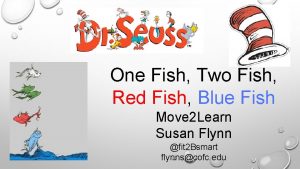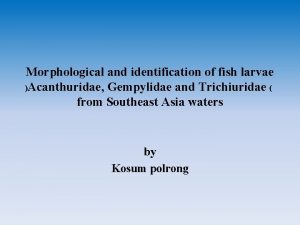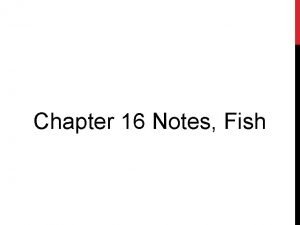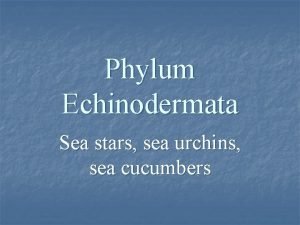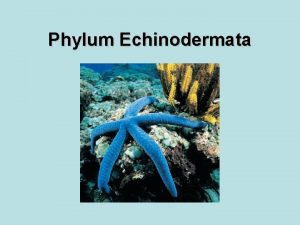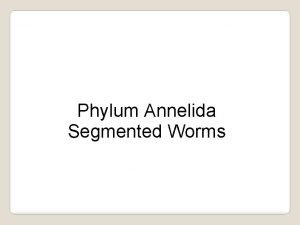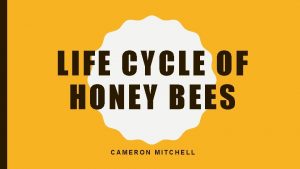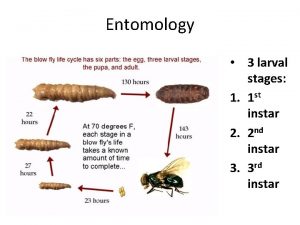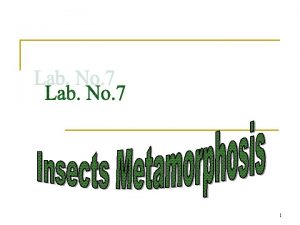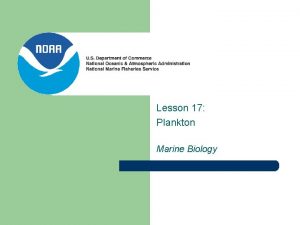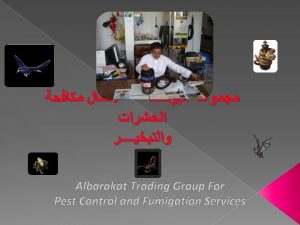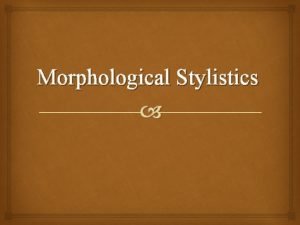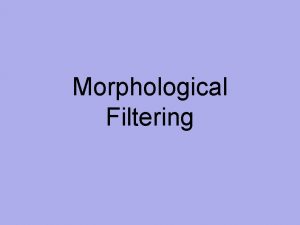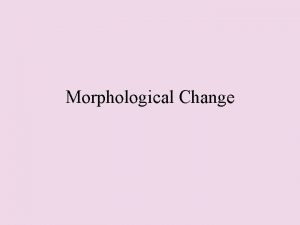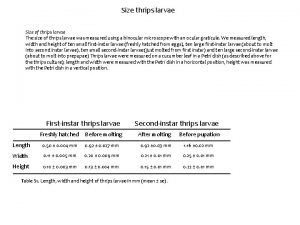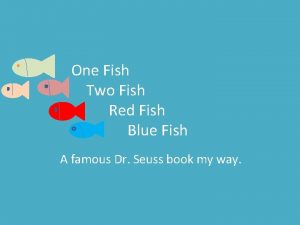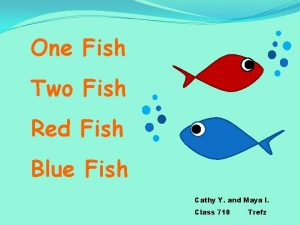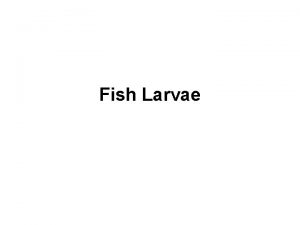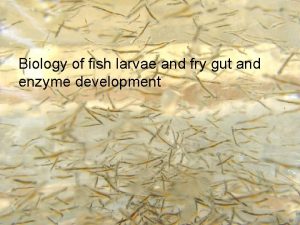Morphological and identification of fish larvae Acanthuridae Gempylidae












- Slides: 12

Morphological and identification of fish larvae )Acanthuridae, Gempylidae and Trichiuridae ( from Southeast Asia waters by Kosum polrong

Review to morphological features Acanthuridae Body shape : Pre flexion-body is moderate deep, strongly compressed laterally, they have 21 -23 myomeres and the gut coiled. Flexion-deeper more than of body, snout have a triangular head and the mouth is small. The eyes a round and moderate to large size.

Spination : Pre flexion-the smaller spines is early appearance in larvae 1. 8 mm have a bones such as supraoccipital crest serrate, preopercle, lower jaw, mid-ventral keel and pelvic girdle. Flexion-following presented of spines at the supracleithral, posttemporal, opercular serrate

Pigmentation Preflexion-The larvae pigment present on brain, gut, along throat, lower jaw, and dorsal surface of gas bladder. Flexion-In some species. The pigment occurrence on caudal peduncle and increase to heavy and density in late stage.

Similar families and genus Difference of characters - Zanclids not have large anal fin spine, the elongate of third dorsal fin spine and in preflxion stage have a longer than of preanal length. - Menids lack elongate fin spine and serrate crests or ridges of head. - siganids and leiogngsthids have larger than preopercular spines and sometime of myomeres number more than to 24

Table 1 Meristic characters larval of Acanthuridae )Ahlstrom, 1948; Leis and carson, 2000; Richards, 2006; Chayakul, 2007) Size(mm) - (b) 5. 30 (a) D A IV-XI, 1933 II-III, 1832 V, 29 II, 30 a = present study B = from review P 1 P 2 C 14 - I, 3 -5 8+8 19 16 I, 0 8+8 M 21 -23 22

Specimens data Participant : Mr. Pitoon puewkhao Family : Acanthuridae Generic name : Naso sp. Sampling locality : Andaman sea Sampling gear : Bongo net Stage: Flexion

Measurements of data - Body length(BL) = 5. 30 mm. - Head length(HL) = 2. 20 mm. - Eye diameter(ED) = 0. 50 mm. - Snout length(Sn. L) = 1. 20 mm. - Preanal length(PAL) = 1. 93 mm. - Body depth(BD) = 4. 20 mm.

Figure A. Naso sp. 2. 20 mm. (Leis and carson, 2000) Figure B. Naso sp. 3. 80 mm. (Leis and carson, 2000)

Figure 1 Naso sp. 5. 3 mm. (BL) 40 x

Morphological features Body shape : - Very deep(79. 26%) - Large head(41. 51%) - Small eye(22. 73%) Gut : - Coiled Head spination - Supraocipital crests and spraocular

Pigmentation The pigment present on brain, around of abdominal cavity, pectoral fin base and caudal peduncle. All pigment increase to heavy and density in late stage.
 One fish two fish red fish blue fish ride
One fish two fish red fish blue fish ride Acanthuridae lower classifications
Acanthuridae lower classifications One fish, two fish, blowfish, blue fish
One fish, two fish, blowfish, blue fish Characteristics of actinopterygii
Characteristics of actinopterygii California finfish and shellfish identification book
California finfish and shellfish identification book Sea daisy
Sea daisy Sea star cephalization
Sea star cephalization Nephridia
Nephridia Life cycle of a honey bee
Life cycle of a honey bee Siphon tube in mosquito larvae
Siphon tube in mosquito larvae Instar larvae
Instar larvae Paurometabola metamorphosis
Paurometabola metamorphosis Octopus larvae facts
Octopus larvae facts
